Indication
This is a variant of Fu Gui Ba Wei Wan – a.k.a. Jin Gui Shen Qi Wan – (Rehmannia Eight Formula) from the ‘Synopsis of Prescriptions of the Golden Cabinet’ (jin gui yao lue fang lun) by Zhang Zhong-jing (circa 150 – 219 CE). It was devised by the great paediatrician Quan Yi and first recorded in his three volume work, ‘Key to Therapeutics of Children’s Diseases’ (xiao er yao zheng zhi jue), 1119.
By leaving out the two Interior Warming herbs (Aconite – fu zi, and Cinnamon – rou gui) the new formula was designed to treat children with deficiency of the innate Kidney-Essence, who manifested the classic signs of delayed development, referred to as the ‘five delays’: standing, walking, tooth development and speech; as well as delayed fontanel closure, and low vitality.
Its use has since been expanded considerably, as evidenced by the broad range of its indications. The formula is highly regarded by herbal doctors in China, where one may frequently observe the routine use of its ingredients in the treatment of patients with Kidney Yin deficiency.
In adults Kidney Yin deficiency may arise due to the after-effects of a febrile illness (which depletes the Body Fluids and thus also the Kidney Yin); excessive sexual activity (which depletes the Kidney essence and thus also the Kidney Yin); having many children with too short an interval between births (depletion of the Blood and Kidney essence); repeated miscarriages or abortions, especially if they occurred close together; prolonged periods of excessive work or physical activity together with insufficient rest or sleep; overuse of Yang tonifying herbs; overuse of alcohol or other ‘recreational’ drugs (including coffee); prolonged emotional stimulation (via Liver or Heart Fire, which depletes the Body Fluids and Yin); the effects of ageing; as well as hereditary lack of innate Kidney essence.
Paradoxically, deficiency of the Kidney Yin does not immediately lead to deficiency of the Kidney Yang, even though the Yang depends on the Yin as its substrate. Instead, there is a tendency for the Yang to become hyperactive because of a lack of the restraining, or counterbalancing, effect of the Kidney Yin. This leads to signs of Heat, such as night sweating, hot sensations, a red tongue and a rapid pulse.
The synergistic actions of the herbs are as follows:
Rehmannia root (shu di huang), Dioscorea root (huai shan yao), Cornus fruit (shan zhu yu): enrich the Kidney Essence and nourish the Kidney Yin.
Poria cocos (fu ling), Alisma plantago rhizome (ze xie): drain Damp and induce diuresis.
Paeonia stem bark (mu dan pi), Alisma rhizome (ze xie): reduce deficiency Heat (or Fire).
Dioscorea root (huai shan yao), Poria cocos (fu ling): tonify the Spleen Qi.
Cornus fruit (shan zhu yu), Dioscorea root (huai shan yao): Astringe the Kidney Essence (to allow it to build up without loss).
ChinaMed approximate equivalent Yin Tonic formula (CM118).
Indications:
Debility due to chronic illness
Hypertension
Diabetes mellitus
Chronic nephritis
Hyperthyroidism
Peri-menopausal syndrome
Vaginal dryness
Chronic recurrent cystitis
Childhood maldevelopment or failure to thrive
Signs & Symptoms:
Pain and weakness of the lower back and possibly also knees
Dry mouth
Night sweats
Tinnitus or loss of hearing
Dizziness
Sensation of heat in the palms and soles
Overactive libido
Nocturnal seminal emission (M) or frequent sexual dreams (F)
Red tongue with scant coat
Thready and rapid pulse that may also be deep
Combinations –
Poor digestion:
BAO HE WAN
XIANG SHA LIU JUN ZI WAN
DIGEST-AID Formula
Qi deficiency:
BU ZHONG YI QI WAN
SHEN QI DA BU WAN
ENERGY TONIC Formula
DEFENCE PLUS Formula
Temporary gastrointestinal side effects (loose stools, bloating and loss of appetite:
BAO HE WAN
TCM Syndromes: Kidney and Liver Yin deficiency.
TCM Actions: Nourishes the Kidney (and Liver) Yin, enriches the Kidney Essence, reduces deficiency Fire.
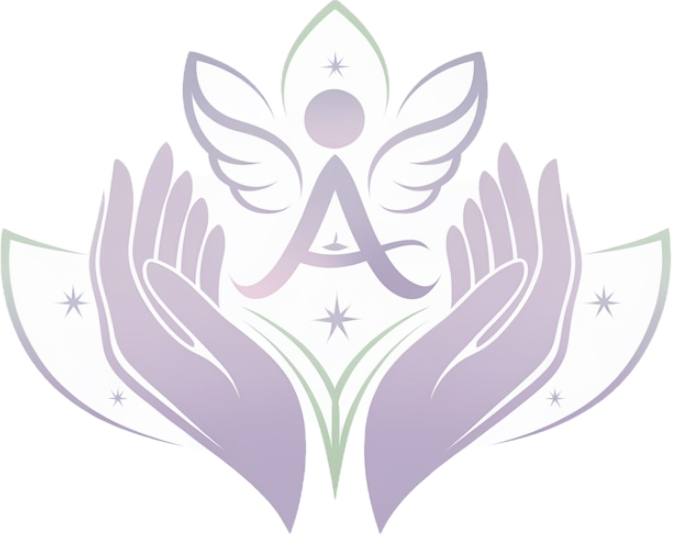

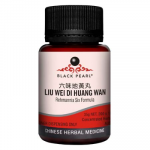
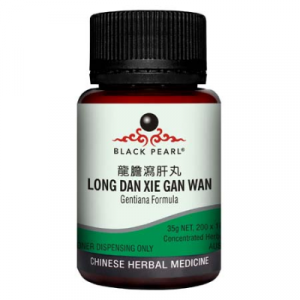
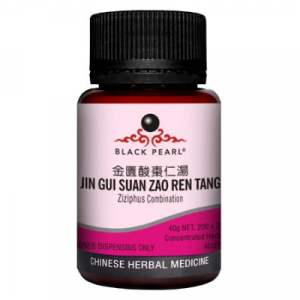


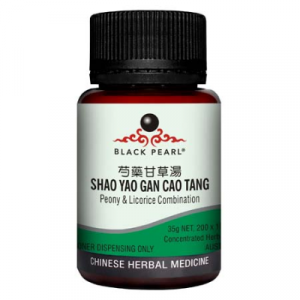

Reviews
There are no reviews yet.